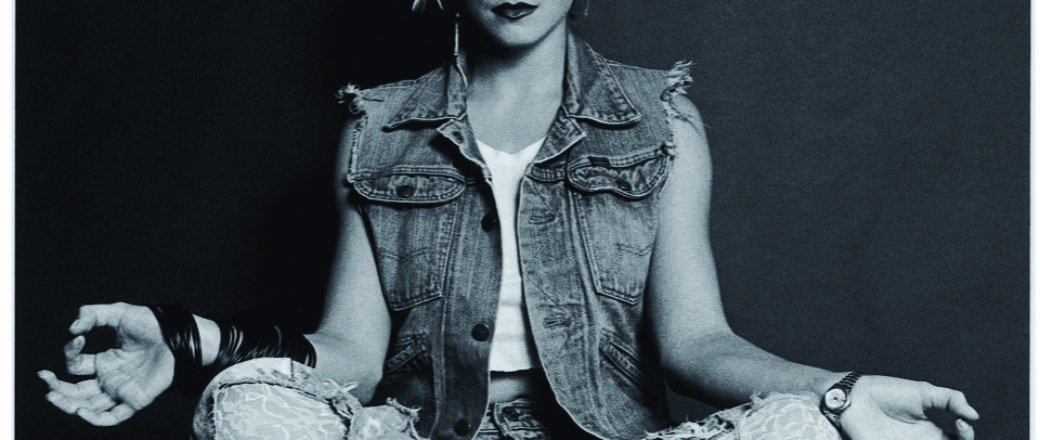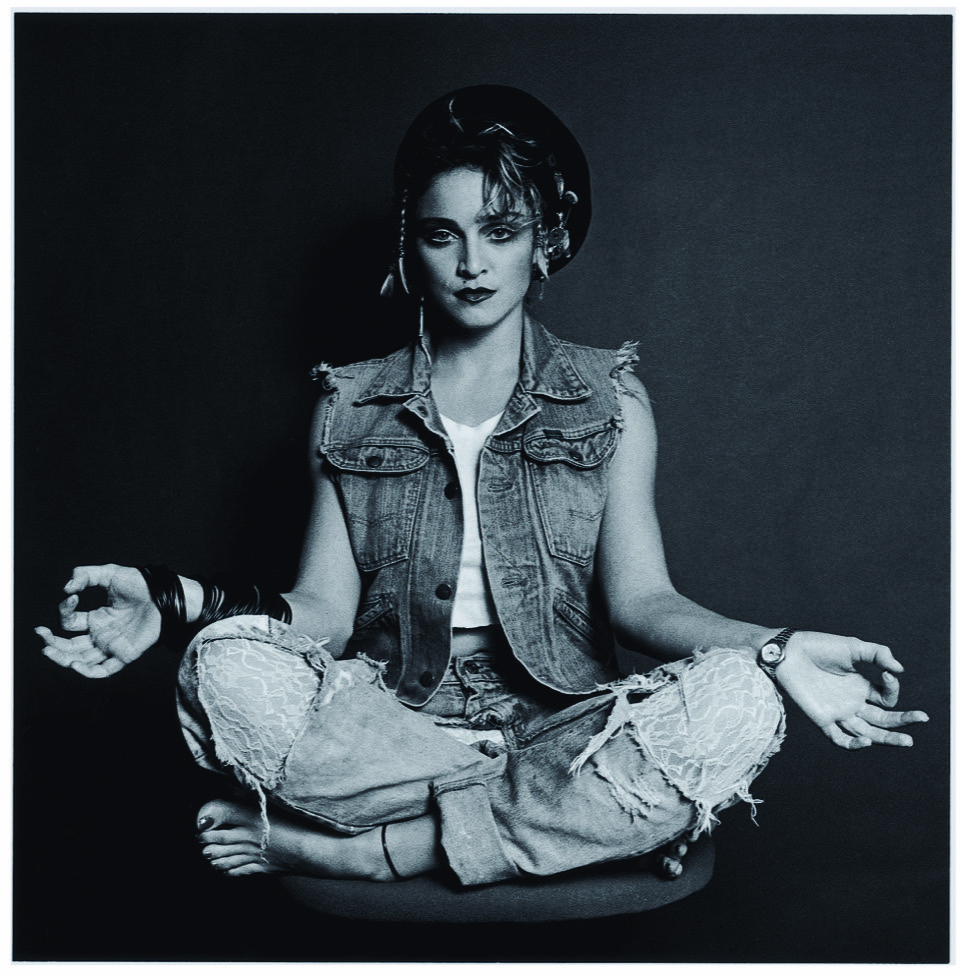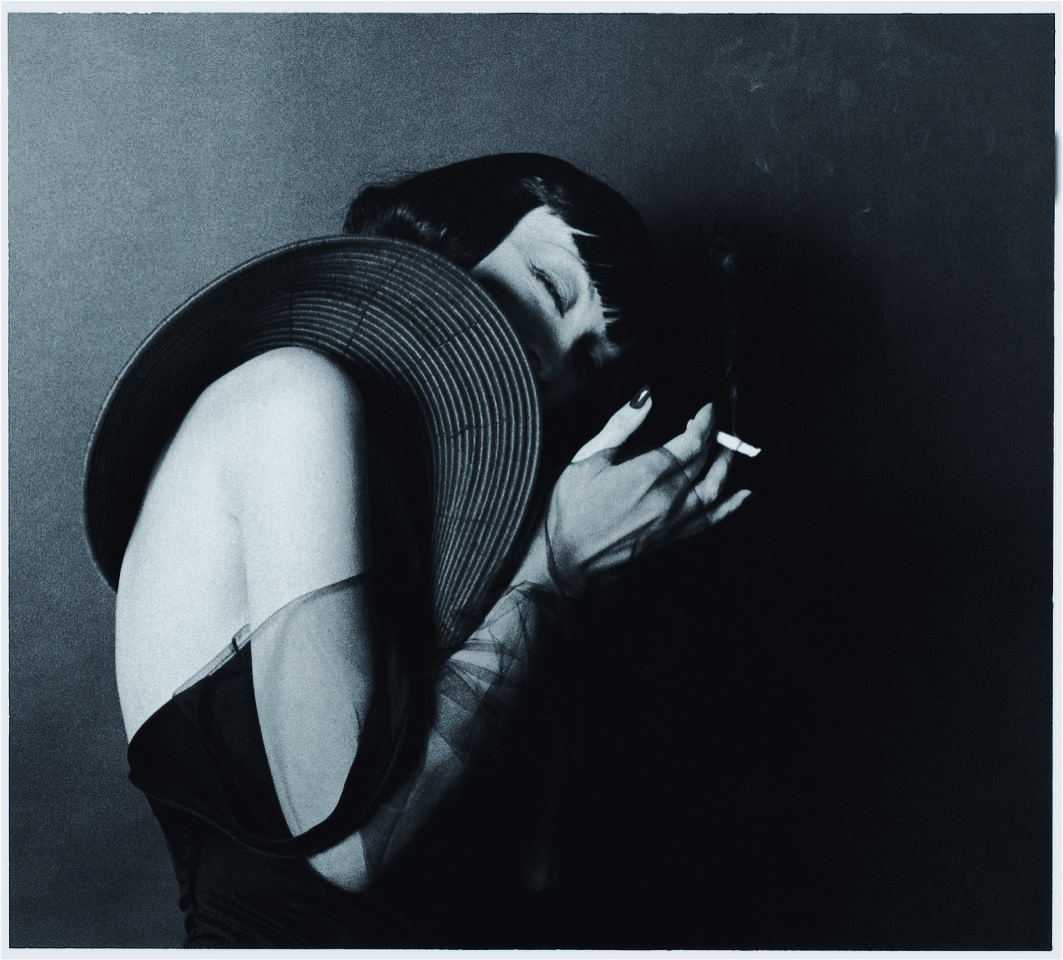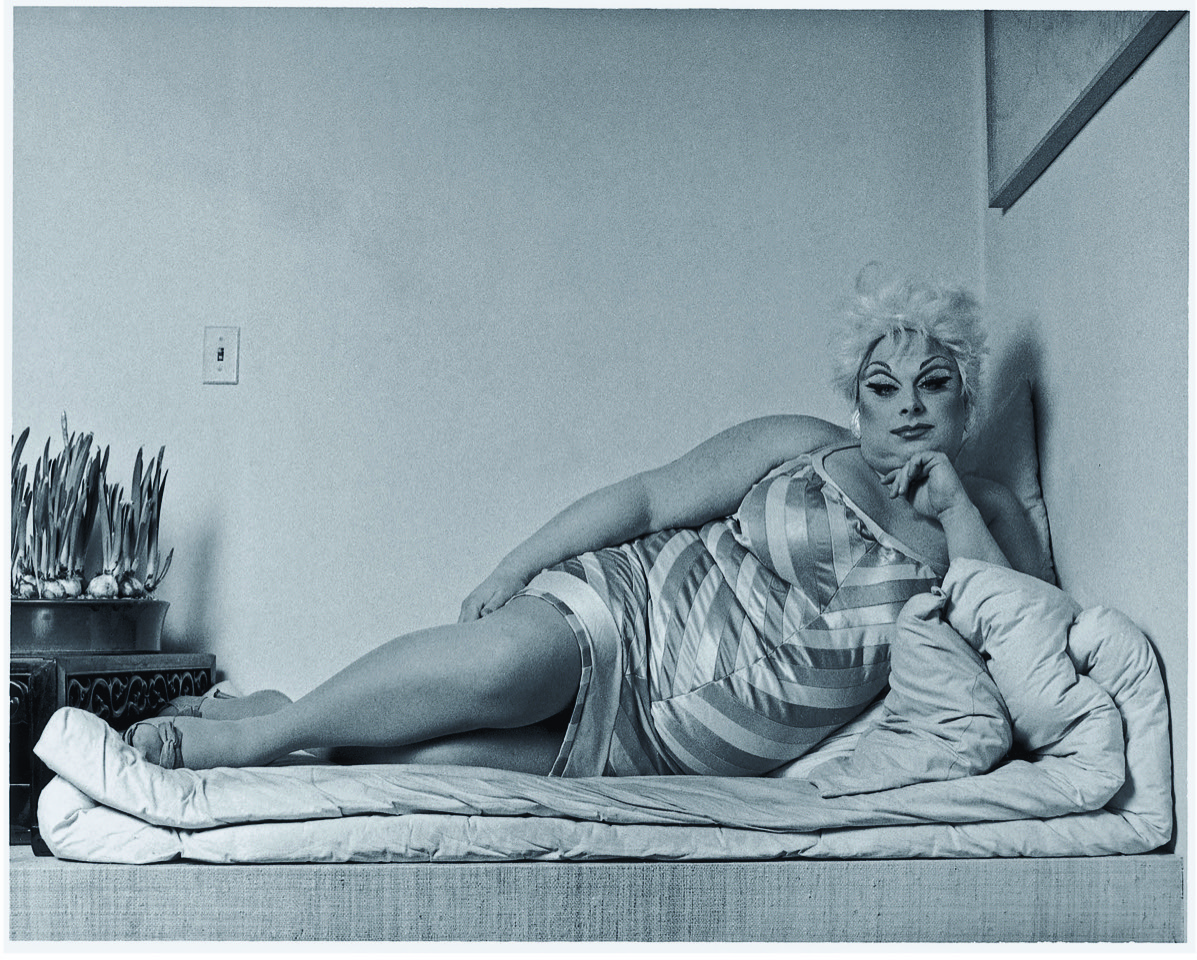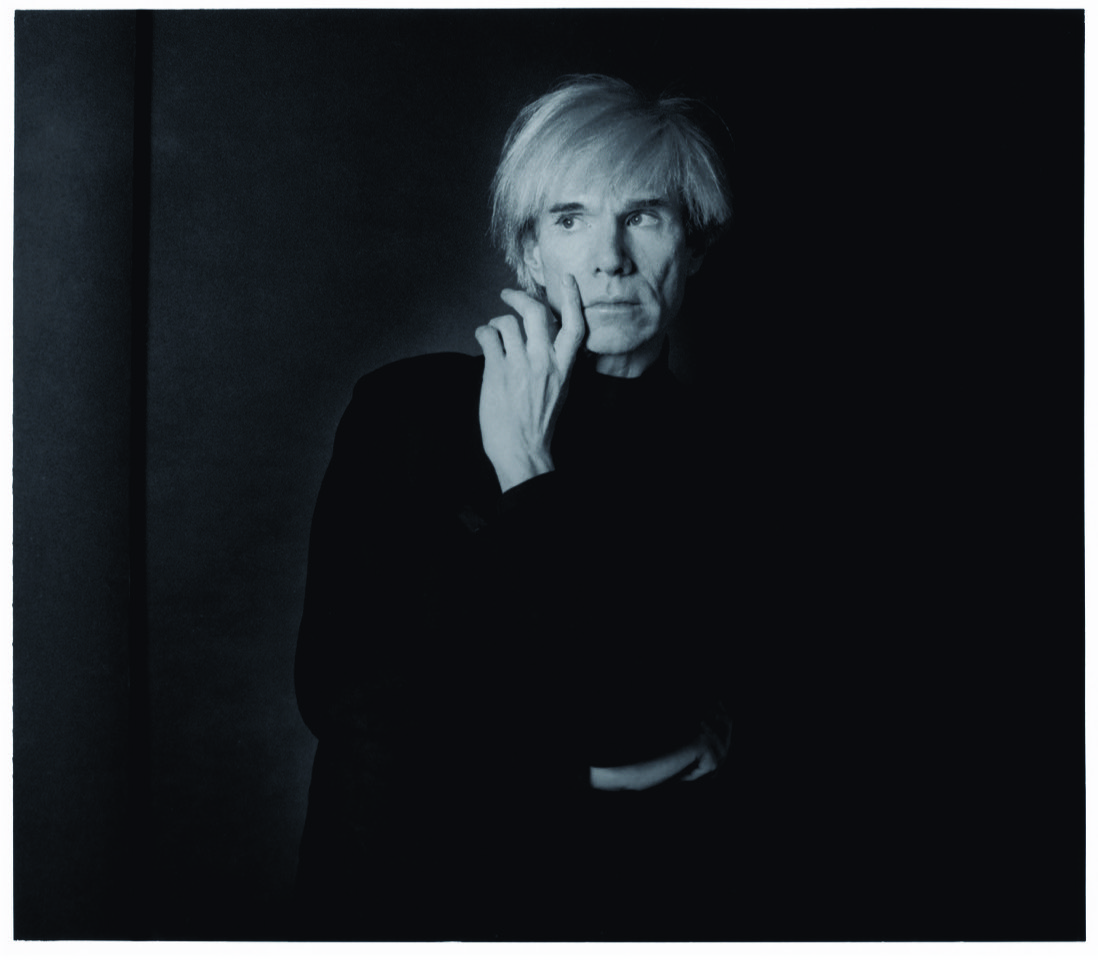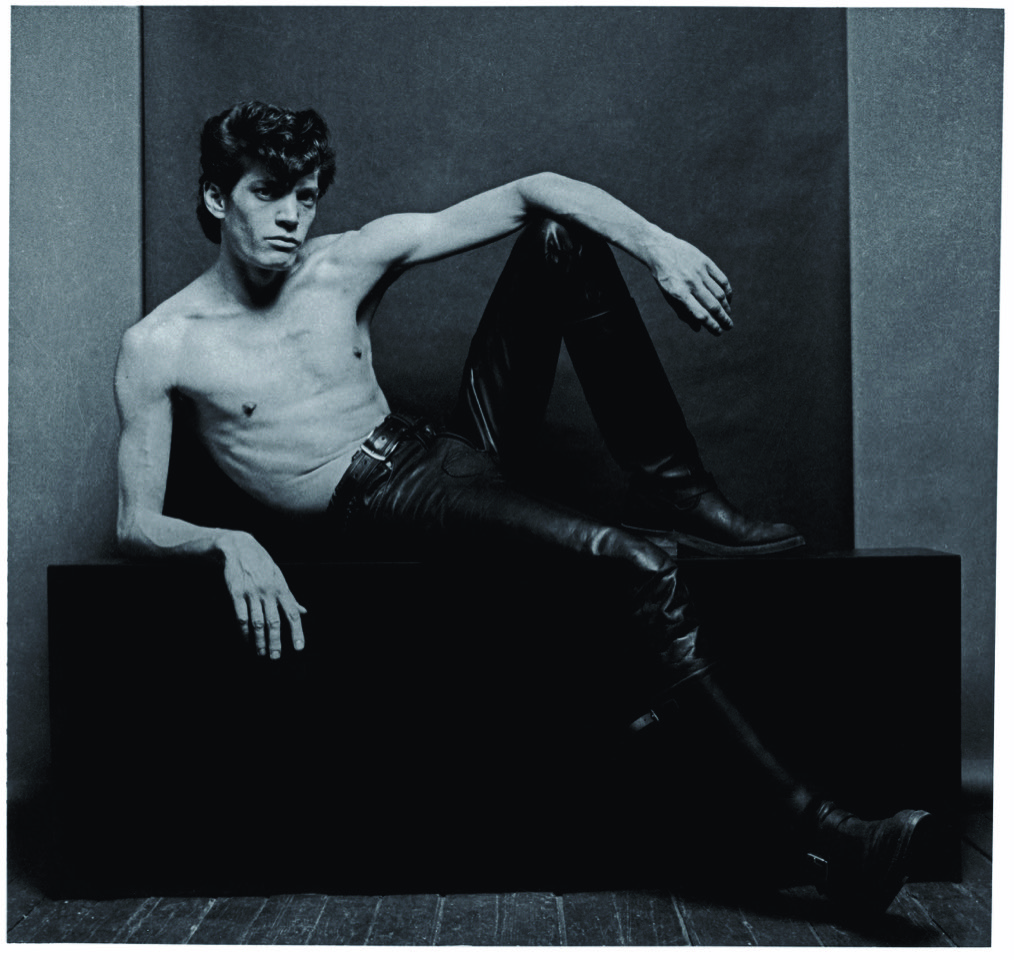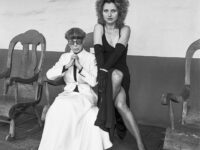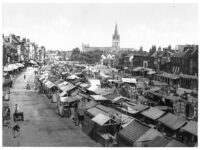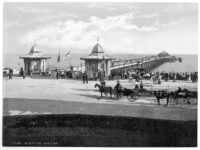Throckmorton Fine Art is pleased to announce a special show of portraits and photographs by the accomplished photographer Marcus Leatherdale. Taken from his new book, Marcus Leatherdale, OUT OF THE SHADOWS – Photographs New York City 1980-1992, (ACC Art Books) the show features dozens of black and white portraits and photographs of the celebrities and characters who peopled the often chaotic and clamorous Downtown Art Scene of the 1980s.
Spencer Throckmorton says, “Leatherdale was just a twenty-something trying to get by when he began shooting often spontaneous shots of the celebrated personalities partying at the downtown clubs popular at the time. He says he didn’t realize he was archiving a raucous era that would soon be extinct – he was just photographing his friends.”
Leatherdale says, “The late ‘70s to early ‘80s was my favorite time in New York. I was in the right place at the right time and I don’t think I have felt that way since. It didn’t matter if I was broke; I felt this was meant to be. I met everyone through Robert Mapplethorpe, Marcia Resnick, and Larissa—and going out to Studio 54 at least twice a week until Mudd Club opened. I was the new kid in town, and I had a New York City guardian angel.”
Carol Squiers, a critic and ICP curator, wrote in the London Regional Art Gallery Catalog of Leatherdale’s works, “Marcus Leatherdale is a documentarian of the cosmopolitan netherworld of style. His subjects are thoroughly visual creatures who define themselves to a great extent by their appearance. For Leatherdale, the carefully fabricated social façade is thus a portrait of the “true inner self.” No longer is there a pretense of the photographic revelation of individual character; these faces defy that attempted penetration. Indeed, in their self-contained austerity, Leatherdale’s subjects are archetypal contemporary citizens. Their fixed, steady gazes are ready for the challenge of any barren room or crowded street. Posture, accoutrement, and presentation have become a virtual world view, and Leatherdale documents this phenomenon with an understanding and graceful precision.”
In the book’s introduction, Claudia Summers, Leatherdale’s onetime loft mate and muse, remembers first meeting Marcus in San Francisco when they both inhabited the insular punk scene there. Marcus was studying at the San Francisco Art Institute. When Claudia moved to New York in the spring of 1978 Marcus was the first familiar face she saw on her first day there. They soon became inseparable. New York was bankrupt, grimy and disorderly at the time, having been abandoned by the politicians sparked by President Ford’s plea to “drop dead.” They shared a loft at 281 Grand
Street in a neighborhood peopled by trannies, flop houses, hookers and boomboxes.
Claudia says that while Marcus had been studio manager to Robert Mapplethorpe in his early years in New York, he had moved on to photograph the famous, infamous and not-so-famous downtown denizens who made the trek to their loft/studio. “Among the personalities he shot were Kathy Acker, Lydia Lynch, Amos Poe, John Kelly, Bernard-Zette, Joey Arias, Leigh Bowery, Patti Ramelli, Scott Covert, Alice Himmelstein, Cookie Mueller, Ethyl Eichelberger, Dianne Brill, Lisa Lyon, Mae Alexander, International Chrysis, and Divine, as well as bold face names including Madonna, Debbie Harry and Andy Warhol.
“Marcus became even better known when he began to photograph the monthly “Hidden Identities” for Details magazine, celebrities for Interview, and when Issey Miyake asked Marcus to contribute to Body Works, a book that would begin to sever traditional boundaries between fashion and art. Artforum published Marcus’s Rattan-vine Gown from Body Works on its February 1982 cover, the first-time clothing had ever been featured on the cover of an art magazine.”
Leatherdale says, “It began one night at The Underground nightclub during a Dada-inspired event in 1983. I took over the go-go cage and started photographing unidentifiable portraits. It was like a photo booth and everyone lined up for it. Back then you didn’t see portraits of famous people hiding themselves in front of the camera. The idea was that your personal style was enough to be recognizable. You didn’t need to see the face of a person to know who they were.”
Claudia says, “The boundaries between uptown and down seemed to be blurring. Marcus was called on to photograph Robert Rauschenberg, Iman, Peter Allen, Pat Cleveland, Tina Chow, Trisha Brown, Andree Puttman, Dolph Lundgren, Jodie Foster, and Quentin Crisp, among others.
“Marcus frequently photographed the same people more than once. For him, clicking the shutter, adjusting the f-stop was personal loyalty and appreciation. It was artistic greed. It was a dance of mutual trust. I say photographs are by essence memento mori; the camera’s eye shutters on a moment already gone before the breath exhales; a moment already dead. “Soon death began to thread through our lives, our community. Marcus was heartbroken to watch his friends die of AIDS. How was it possible to sustain such grief, sustain such loss? The simple answer is love, and rage. Each death, of those we loved, of those we barely knew, of those who were complete strangers, continues to live in our bodies of blood, bone and heart.”
In a conversation with Michelle Caswell published by the Asia Society, Leatherdale, a Canadian native, talks about the friends he made in the pre-AIDS New York art scene when, as an impressionable kid with no solid idea of what to do with his life or work, he gained entry to the celebrity-laden club scene. Leatherdale staged his first exhibitions at Club 57 and Danceteria but still had no idea that his photographs would stand as a kind of anthropological survey of a soon-to-beextinct urban tribe – the avant-garde nightlife scene downtown at clubs like Area, the Pyramid and Mudd Club.
“I had been avoiding all this in a way,” Leatherdale says. “These photographs have been in my closet for a long time. I dusted everything off and brought it out kicking. It was a sad past. It’s bittersweet. Many of the people in the portraits are gone. You can’t go back. You build up such an armor and resistance to it.”
Out of the Shadows is a poignant reminder that the over-the-top glitz and glamour of the ‘80s was in many ways a smokescreen for a shadow casting a pall upon the earth, a last hurrah akin to Weimar-era Berlin. “The number of memorials I went to at that time is not to be repeated. I felt like the only man standing. That happens a lot when I look at photographs,” Leatherdale reveals.
His work has appeared in The New Yorker, Vanity Fair, Details and Interview and has been exhibited at galleries and museums worldwide.
Marcus Leatherdale
OUT OF THE SHADOWS
November 7, 2019 – January 25, 2020
Throckmorton Fine Art
145 E 57th Street,
New York, NY 10022
www.throckmorton-nyc.com
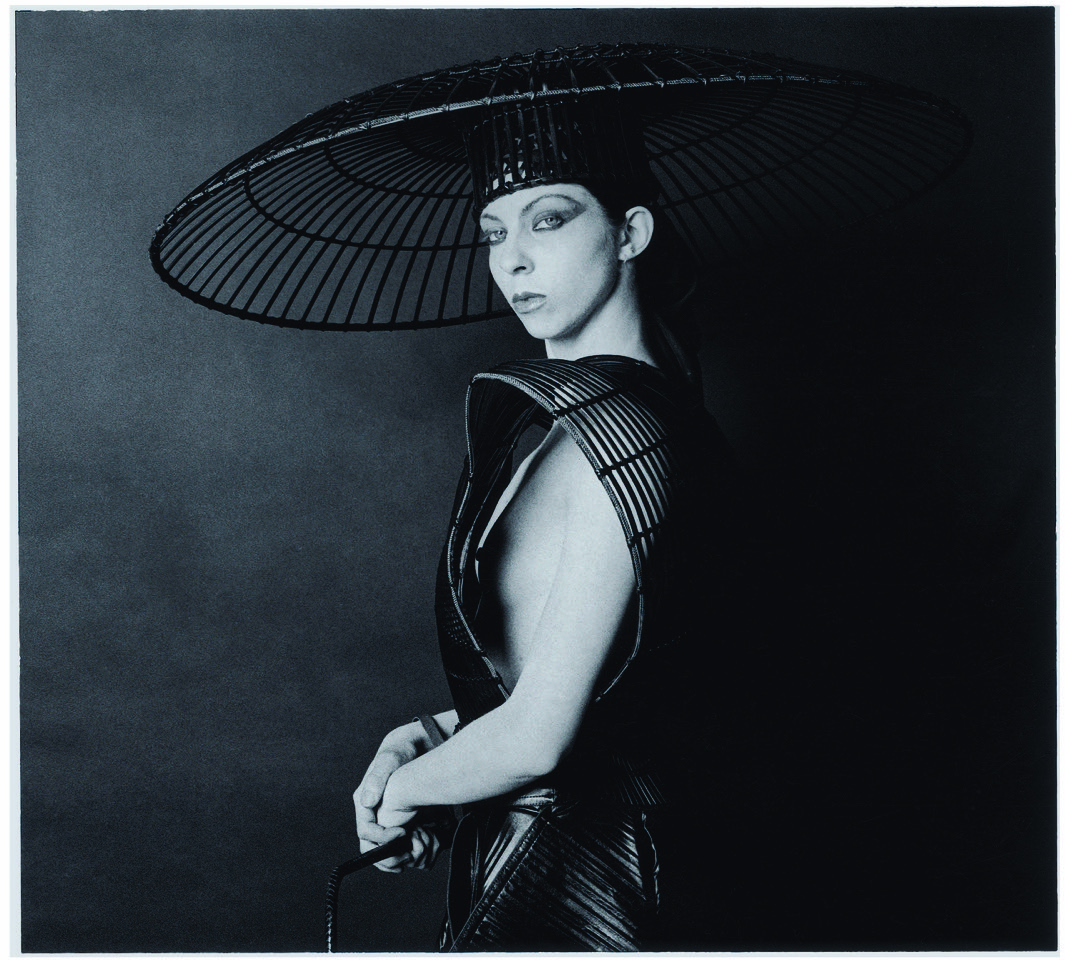
Frida Kahlo Ying and Yang Inscribed: Ponlo tambien en tu oficina, pues me gusta mucho a ti, Venadito/Put this as well in your office, I like it a lot, Little Deer 1946

